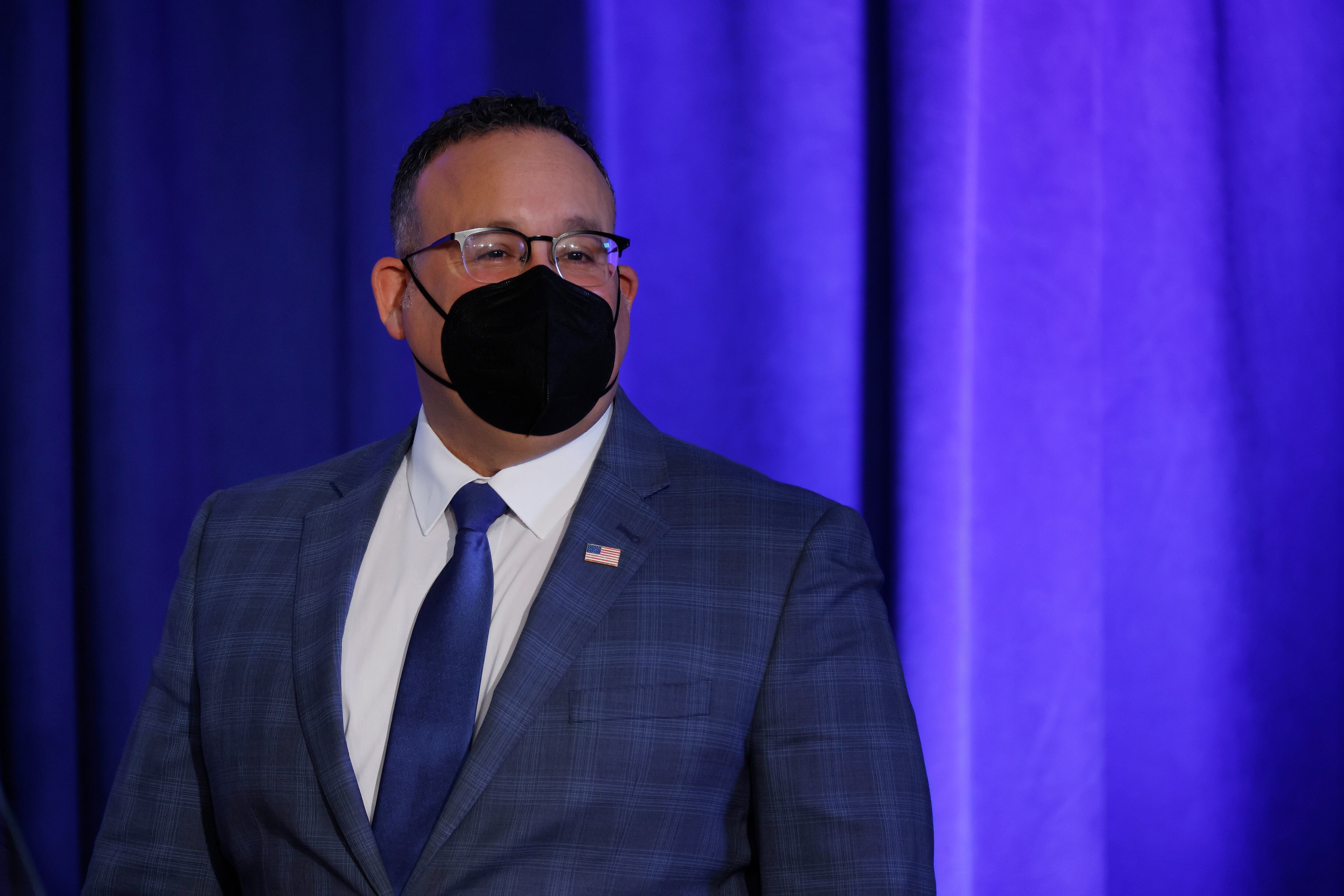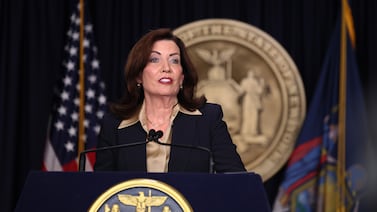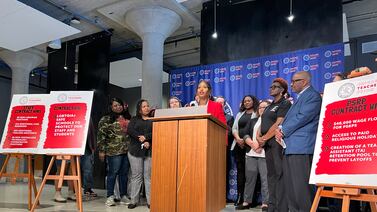Education Secretary Miguel Cardona challenged schools to keep their focus on getting struggling students back on track Thursday, while acknowledging that the disruption caused by the latest wave of COVID cases has exhausted the country’s educators.
“I know you’re tired, I know you’re stretched,” Cardona said in a speech delivered Thursday from the Department of Education, where he laid out his priorities for the months and years ahead. “I see you, and I understand what you’re going through. It will get better.”
Cardona’s words come as the omicron variant has left many schools struggling to fill staffing gaps. Without enough substitute teachers, educators have had to fill in for colleagues, combine classes, and try other stopgap solutions. Those challenges have prompted some schools to return to virtual learning for days or weeks and depleted educators’ and families’ reserves.
And while the education secretary noted the progress the nation had made in returning nearly all schools to full-time in-person learning, he said reopening and keeping schools open was critical but also insufficient for helping students recover.
“We must make up for lost time,” Cardona said. “Our hardest and most important work lies ahead. It’ll be what we’re judged against. As educators and leaders, we’re either closing educational opportunity gaps, or making them worse with the decisions we’re going to make in the next coming months and years.”
Cardona called on schools to use some of their billions in COVID relief funds to invest in academic recovery, calling specific attention to intensive tutoring, after-school programs, and summer school.
He asked school district leaders to try to give every struggling student at least 90 minutes a week of targeted support from a trained tutor — a strategy known as “high-dosage” tutoring that has proven successful in some cities that have tried it.
“We cannot expect classroom teachers to do it all,” Cardona said.
Many states and districts are now trying to ramp up massive tutoring programs, but have run into difficulties finding and hiring enough tutors. Some have boosted pay for tutors or expanded their programs more slowly because of the challenging labor market.
And with schools reporting an uptick in students struggling with behavior and mental health this year, Cardona called on districts to use their pandemic aid now to hire more mental health staff, such as counselors, psychologists, and social workers, and to pay community health partners for help.
Cardona also said schools should be investing in hiring and retaining paraprofessionals — an important role for supporting students with disabilities that has been especially difficult to staff this year due to the low pay.
The education secretary cautioned that a lack of mental health or other support shouldn’t lead to suspensions and expulsions for students who are suffering from trauma.
Cardona also used the speech to reiterate some of President Biden’s longer-term goals for funding education, including directing more money to schools that serve more students from low-income families, raising teacher pay, and expanding preschool.
On the campaign trail, Biden called for tripling Title I funding for low-income schools, and his administration has proposed doubling it in its federal budget for this school year, a move that would send an additional $20 billion to those schools.







